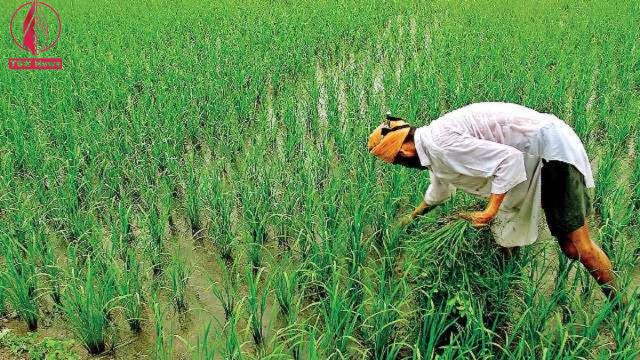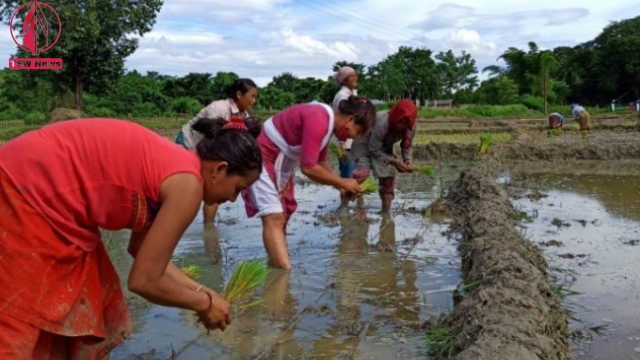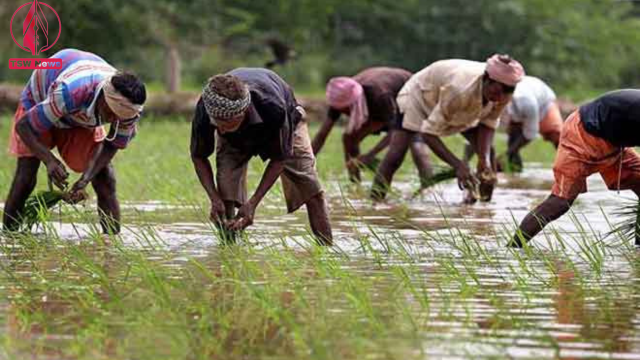Government Approves Increase in MSP for Kharif Crops, Boosting Farmer Support and Reducing Import Dependence
- Posted on June 8, 2023
- News
- By Sunshine
- 360 Views

kharif crops:-
The minimum support price (MSP) for Kharif crops in 2023-24 has been authorized by the government to be raised.
The Indian government has taken a major step to aid farmers and decrease the country's dependence on imported goods by granting permission for a rise in the minimum support price (MSP) for all 14 kharif, or summer-sown, crops mandated for the 2023-24 period.

The Minimum Support Price (MSP) for various crops has been increased by a considerable amount ranging between 7% to more than 10%. Paddy, for instance, has experienced a 7% surge equating to Rs 143 per quintal.
By increasing the Minimum Support Price (MSP) by over 10% for significant pulses like moong (green gram), as well as for oilseeds such as sesamum and groundnut, the message has been sent to farmers to consider diversifying their crop portfolio.
The objective of this move is twofold: it aims to not just maximize profits but also lessen India's reliance on imported goods to fulfill local demands.
Out of the MSPs approved for the 2023-24 season, green gram (moong) experienced the most significant rise of 10. 4% compared to the previous year, while sesame followed closely with a 10. 3% During the forthcoming kharif marketing season, there was a noteworthy rise of 8. 9% in the cultivation of profitable crops such as cotton.
In a tweet, Prime Minister Narendra Modi shared his backing for the move, emphasizing its potential to encourage farmers to cultivate a wider variety of crops and receive fair compensation for their yields.
The markup in the minimum support price (MSP) corresponds to the government's pledge, declared through the 2018-19 budget, to establish backing prices at a minimum of 1. 5 times the overall expense of production weighed all over India.
The implementation of this policy is anticipated to grant farmers greater profits compared to the expenses involved in the production process, thereby motivating them to grow lucrative crops like bajra, tur, soybean, and urad.
At a minimum, the profit above the expenses of producing other crops, such as rice, is predicted to be 50%.
The advantages of the increased MSP were highlighted by the Union food minister, Piyush Goyal, who emphasized that this was happening during a period of decreasing retail inflation and would be especially advantageous for farmers.
He made a comparison between the current inflation rate, which stands at 4. 5%, and the 9-10% range witnessed during the previous government's time.
SBI Research is confident that the rise in MSP will not cause rising inflation because its effect on inflation is directly linked to procurement. The report pointed out that the primary focus for cereals procurement lies on rice and wheat, whereas the purchasing of pulses by the National Agricultural Cooperative Marketing Federation (Nafed) is restricted.
The Indian administration has made it a top priority to keep a close eye on food inflation and has accomplished noteworthy achievements in boosting food grain output.
The agricultural production of the nation has persistently increased from 2016-17 and is projected to hit an unprecedented high of 330 million tonnes by 2022-23.
India has achieved a remarkable self-sufficiency level of more than 90% in the pulses category, thanks to the substantial increase in its production.

The objective behind raising the MSP for Kharif crops during the 2023-24 marketing season is to promote farmer welfare, bolster India's agriculture industry, ensure food sufficiency, and lessen the country's reliance on imports. Whether the goals are met in the end or this proves to be a disastrous move by the government , only time can tell.
For more updates keep visiting our website www.topstoriesworld.com where we provide unbiased, true and top stories of the world.




